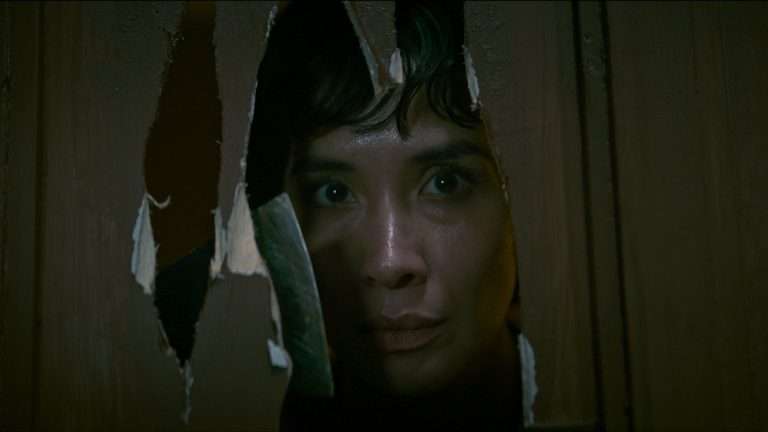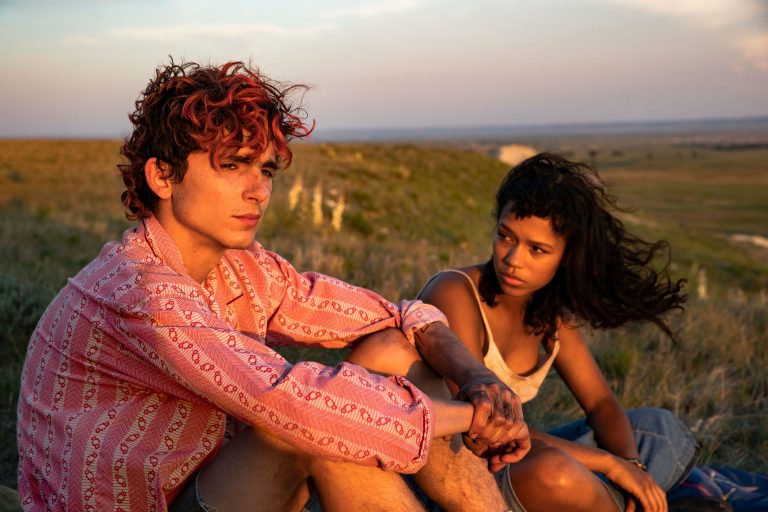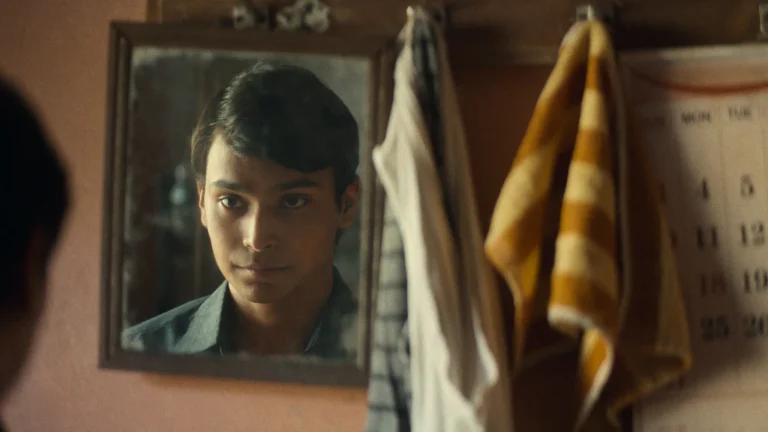Coming-of-age seems like a fascinating genre for filmmakers, as it can offer them a chance to look back at their pasts and craft a script that is close to their hearts. They can draw from their own experiences and bring them to life in a way that most of us would resonate with. There’s a familiar arc to these stories, filled with profound realizations. It leads one to a new part of life, which can feel almost like a rebirth. Sarah Goher’s “Happy Birthday” paints a similar arc for her protagonist, even though she is only eight years old.
The fact that she is young for this journey is partly the point. She is not waking up to the waves of adulthood but to the harsh reality of working as a housekeeper for a working-class family, at a time when she should still be basking in her innocence. Goher, a New York-based filmmaker, paints this portrait based on her childhood experiences during vacations in Cairo, where a young girl used to work similarly at her family home.
Therefore, contextually, her relationship with her subject is closer to Alfonso Cuarón’s relationship with his in “Roma.” Cuarón also presents it based on his personal reflection, but treats his film as a tribute to the women who raised him, focusing on the housekeeper’s generosity toward him.
Goher decentres her story, letting the protagonist breathe beyond what she meant specifically to her, while still addressing their relationship within the social hierarchy. So, we don’t meet Toha (Doha Ramadan) for the emotional warmth she represents to the middle-class family. Instead, we see the family through her eyes. Goher, who wrote the script with Mohamed Diab, does not lead with dewy-eyed nostalgia as Cuarón does, but with introspection, leading to sharp realizations, while using her specific perspective to deepen the complexity of her female characters.
While scrutinizing the interpersonal dynamic, Goher reflects on the very nature of generosity, whether one acts generously out of choice or faithfulness to a habit. Her script revisits the element of choice right from its central hook. It revolves around a celebration that Nelly, a young girl as old as Toha, wants to throw on her birthday, which seems challenging in her father’s absence.
Her mother, Laila (Nelly Karim), has separated from him and is raising Nelly with her mother’s support. So, her qualms affect whether Nelly would even get to celebrate it or not. That also affects Toha, working for their family, and her close friend, who is excited for the birthday as if it’s her own.

The script initially presents them through the lens of their friendship, where it follows Toha helping Laila prepare for Nelly’s birthday. Her deep emotional investment in this celebration reflects her innocence, but doesn’t immediately address its roots. There’s a lot of unexplored tension you get discomforted by in that early stretch, despite an outwardly warm and fuzzy narration. You naturally wonder: Why is an eight-year-old working for the family? And why is her servitude taken for granted and not stigmatized?
That doesn’t last too long since the film soon extends beyond its initial cutesiness to reveal its critical core. It takes us through Toha’s modest neighborhood in a fishing village, juxtaposing it with Nelly’s spacious home, but not for the obvious critique of classism merely through the representation of their disparities. Instead, it uses that only as an introduction to their wealth disparity, further addressing how one’s proximity to the benefits of the status quo affects one’s judgment, even one’s ability to dream. Some may stand a chance to fulfill that dream, while others struggle to pass every waking day.
The script maintains that sense of objectivity even while following Toha’s subjective experience. It cleverly uses foreshadowing, showing Toha and Nelly’s pasts, fears, and desires interject — without letting its heavy subtext bog down its emotional resonance. That’s mainly because of Goher’s direction, where she allows the film’s pivotal moments to make their presence felt by staying with the actors as they register all the emotional detail they can.
She balances the charming with the poignant, while also reflecting on aspects of womanhood, be it financial agency or independence. Doha Ramadan, who bears the heaviest burden in the cast, becomes the film’s highlight, fleshing out plenty of nuance from Toha’s gradual realization/s, leading her on a journey of loss of innocence, while portraying her simple pleasures as honestly as her gripes.
Goher presents her intersectional analysis of class and gender, mainly through Toha’s eyes, while occasionally following it through Laila’s. The latter perspective also addresses the burdens of motherhood regardless of class position. However, it misses an opportunity to interject that with Toha’s mother’s arc. She appears only in brief flashes, but her arc revolves entirely around her relationship with Toha, leaving us with barely understanding of her as a person, since all we learn are outward observations, not her psyche. That might be the only gripe about this otherwise expertly crafted script that compels you to dig deeper despite its apparent simplicity.








